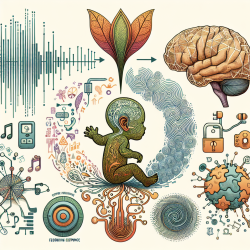Understanding Adolescent Weight Loss Intent
Adolescent obesity remains a pressing public health issue, with significant implications for both health and economic outcomes. The 2017 National Youth Risk Behavior Survey (YRBS) offers valuable insights into the energy balance-related factors that influence adolescents' intent to lose weight. By examining these factors, practitioners can enhance their strategies for supporting healthy weight management in adolescents.
Key Findings from the YRBS Study
The study analyzed data from a representative sample of U.S. adolescents, focusing on sedentary behaviors, physical activity, and dietary habits. The findings revealed a complex relationship between these factors and adolescents' weight loss intent:
- Adolescents who played video games for three or more hours daily were more likely to express a desire to lose weight.
- Those who met the recommended 60 minutes of daily physical activity were less likely to have weight loss intent.
- Regular breakfast consumption was associated with lower odds of weight loss intent, while weekly salad consumption was linked to higher odds.
Implications for Practitioners
These findings suggest a discordance between adolescents' weight loss intent and their engagement in specific health behaviors. Practitioners can leverage this information to guide interventions that promote sustainable weight management:
- Encourage Balanced Physical Activity: Emphasize the importance of regular physical activity, highlighting its benefits beyond weight loss, such as improved cognitive function and emotional well-being.
- Promote Healthy Dietary Habits: Educate adolescents on the role of balanced nutrition in achieving and maintaining a healthy weight. Encourage regular consumption of fruits and vegetables while addressing misconceptions about meal skipping.
- Address Sedentary Behaviors: Help adolescents understand the impact of excessive screen time on their health and weight management goals. Encourage alternative activities that promote movement and social interaction.
Encouraging Further Research
While the YRBS study provides valuable insights, it also highlights the need for further research to explore causal relationships and the effectiveness of specific interventions. Practitioners are encouraged to stay informed about the latest research and incorporate evidence-based practices into their work.
To read the original research paper, please follow this link: Energy balance-related factors associating with adolescent weight loss intent: evidence from the 2017 National Youth Risk Behavior Survey.










